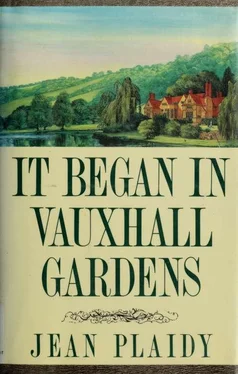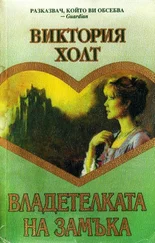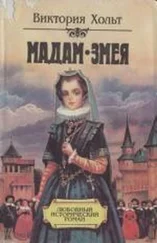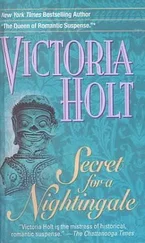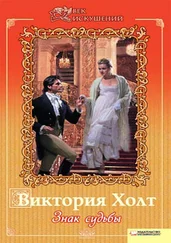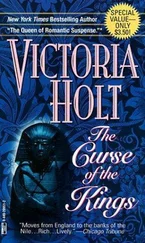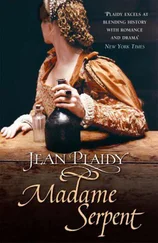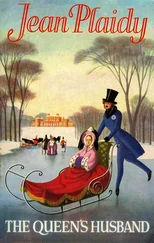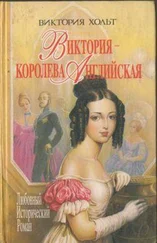Виктория Холт - It began in Vauxhall Gardens
Здесь есть возможность читать онлайн «Виктория Холт - It began in Vauxhall Gardens» весь текст электронной книги совершенно бесплатно (целиком полную версию без сокращений). В некоторых случаях можно слушать аудио, скачать через торрент в формате fb2 и присутствует краткое содержание. Жанр: Исторические любовные романы, на английском языке. Описание произведения, (предисловие) а так же отзывы посетителей доступны на портале библиотеки ЛибКат.
- Название:It began in Vauxhall Gardens
- Автор:
- Жанр:
- Год:неизвестен
- ISBN:нет данных
- Рейтинг книги:5 / 5. Голосов: 1
-
Избранное:Добавить в избранное
- Отзывы:
-
Ваша оценка:
- 100
- 1
- 2
- 3
- 4
- 5
It began in Vauxhall Gardens: краткое содержание, описание и аннотация
Предлагаем к чтению аннотацию, описание, краткое содержание или предисловие (зависит от того, что написал сам автор книги «It began in Vauxhall Gardens»). Если вы не нашли необходимую информацию о книге — напишите в комментариях, мы постараемся отыскать её.
It began in Vauxhall Gardens — читать онлайн бесплатно полную книгу (весь текст) целиком
Ниже представлен текст книги, разбитый по страницам. Система сохранения места последней прочитанной страницы, позволяет с удобством читать онлайн бесплатно книгу «It began in Vauxhall Gardens», без необходимости каждый раз заново искать на чём Вы остановились. Поставьте закладку, и сможете в любой момент перейти на страницу, на которой закончили чтение.
Интервал:
Закладка:
Then she threw herself on to the bed and laughed until she cried.
But she must pull herself together. She got up and bathed her face. After the visitor had gone she would be needed to help her mistress prepare for bed. Mrs. Lavender should not have the pleasure of seeing that she had shed tears.
She would, of course, be given notice to leave. Very well, she would have to find herself something this time. And somehow she would make a new life for herself. She would live again.
Being alive again meant a return of pride, a return of hope. She indulged in day-dreams now, as she had when she was a child at the Convent.
She was Melisande to whom wonderful things must happen. She had been hurt and she had allowed that hurt to crush her. She remembered the little punishments at the Convent, which had seemed enormous at the time. She remembered the first time she had been sent to the sewing-room and kept there for three hours. It had seemed a lifetime. And in the same way now, a few weeks seemed a lifetime. But the gloom always passed and the brightness broke through ... as it would now.
She had several happy dreams, but none of them could be carried to a satisfactory conclusion. None could be complete in itself. One was that Sir Charles repented of his pride and came to claim her; he took her back to live in Cornwall. But how could she go on with that dream ? What of Caroline, his daughter ? Was Caroline alive ? Was Caroline dead? Then she dreamed that she was married to Fermor. But where was Caroline in that dream? Caroline must always be there; Caroline alive made their union impossible. Did Caroline dead make it equally so? Sometimes she thought of Leon— not the Leon she remembered, tortured by a terrible tragedy, furtively looking about him as it seemed for the accusing eyes of those who believed him guilty of a callous deed, but a Leon who was a combination of himself, Fermor, and her new acquaintance Thorold Randall. Sometimes she dreamed that Fenella found her and took her back, and that in the salon she met a stranger; he was this new combination of Fermor, Leon and Thorold Randall.
She clung to these dreams. They represented hope. She took new pride in her appearance. She was so pretty, and it became pleasant once more to accept the little attentions which were the natural homage of beauty like hers, and which came from cab drivers, policemen and men in shops to which she went on errands for Mrs. Lavender. All that gave her confidence, new weapons with which to fight the Lavenders.
This was being alive again.
Strangely enough Mrs. Lavender made no reference to the little scene which had taken place in the drawing-room. She had decided to overlook it and put it down to foreign temperament. Melisande knew then that Mrs. Lavender was by no means displeased with her work.
Two days after the whist party, on the occasion of her free afternoon, Melisande came out of the house to find Thorold Randall standing idly outside.
She was pleasantly startled. This was Melisande reborn, eager for excitement. Her green eyes sparkled.
"Why," he said, "it's Miss Martin."
"You want to see Mrs. Lavender ? She is resting. But Mr. Lavender is at home."
"I wish to see neither of them. But I was waiting for someone."
"Oh?"
"I should like to offer my condolences for the other night. I was distressed."
"I was not. I was glad."
"Glad to be treated as you were! A young lady like yourself?"
"A lady's maid, Mr. Randall. You forget that."
"I forget nothing. It is distressing to see a young lady like yourself treated in such a way."
"Then that is very good of you. I will thank you and say goodbye."
"Please don't say goodbye. May I walk a little way with you?"
"But you are waiting for someone."
"For you, of course."
"But how did you know I should be free?"
"A little careful enquiry."
She laughed. "Then it was doubly good. First to wait and tell me you are sorry. And second for taking so much trouble to do so."
As they walked along, he said: "There were unpleasant consequences? She er ..."
"I am still her maid. She has said nothing of the incident. So you see you should not be so sorry for me. You will make me sorry for myself, and it is not good to pity oneself. If you are not pleased with life ... then you must seek some means of changing it."
"It is not always possible to change it."
"Then one must make it possible."
"You are a strange young lady. I thought at first how quiet you were that evening ... how meek."
"Crushed!" she cried. "Mrs. Lavender had her foot on my neck. That is what you thought. It was not so. I just did not care that night. Then suddenly ... I arise. I throw off the foot, and there I am, ready to fight for my dignities ... my rights to be treated not as a lady's maid but as a person."
"Why are you doing such work?"
"Why does one work? Perhaps there is a vocation, and that is one answer. Perhaps one wants to eat, and that is another. Tell me, Mr. Randall, do you work, and for which reason?"
"A little of both. I too must eat. My income is too small for my needs. I am in the Guards. You can call it a vocation."
"So you are a soldier! I must walk this way. I am going to visit a friend who lives near the Strand."
"Then I will walk that way too."
"So you wish to be a soldier and you wish to earn money. You are one of the lucky ones. You do the work you like and by doing it you earn money."
"I hadn't thought of it like that until now. Thanks for pointing it out, Miss Martin."
"My name is St. Martin. Mrs. Lavender calls me Martin because my Christian name is too long and unsuitable; and no lady's maid could be called 'Saint' by her employer."
"Miss St. Martin. And may I know your Christian name?"
"It is Melisande."
"It's beautiful and it suits you. Melisande St. Martin. We have a St. Martin in the regiment. I wonder if you are related to him. His people have an estate in Berkshire."
"Oh, no, no, no! St. Martin is not the name of my family. I was an orphan ... left in a convent, you see. I think neither the name of my father nor my mother is St. Martin."
"I see. What a mysterious person you are! May I call you Melisande? Oh, believe me, that is not meant to be impertinent. It is just that St. Martin seems so remote. Melisande—that is entirely yours, and so charming."
"Then do—providing you do not address me so if there should be another whist party, and I am called up to make a fourth."
"I promise, Melisande."
"I turn off here ... I am going to visit a friend."
"Let me accompany you."
"Her name is Mrs. Chubb, and I had a room in her house. She is so kind. And so is her daughter Ellen who is all-powerful in the the world of cooks and ladies' maids. She found me my post with Mrs. Lavender."
"Would you think it impertinent if I asked what you were doing before that?"
"No. I should not think it impertinent, but I might not wish to answer. Here is Mrs. Chubb's house, and I will say goodbye."
"May I wait for you?"
"Oh, but you must not."
"I should like to. Then I could escort you back."
"It is not necessary."
"Please ... as a pleasure, not as a necessity."
"But I may be a very long time."
Mrs. Chubb, who had been watching through the curtains, opened the door.
"Why, here you are then. I thought I heard footsteps. Oh ... and not alone!"
"Mrs. Chubb, Mr. Randall. This is Mrs. Chubb, Mr. Randall— my very good friend who has been so kind to me."
Mr. Randall bowed, and Mrs. Chubb summoned her instinct and, obeying its commands, took a liking to him on the spot.
"Well, you'll come in, won't you?" she said.
Thorold Randall said he would be delighted.
Mrs. Chubb bustled them into her parlour. She glanced quickly at the daguerrotype as though she were asking Mr. Chubb to take note of her visitors.
Читать дальшеИнтервал:
Закладка:
Похожие книги на «It began in Vauxhall Gardens»
Представляем Вашему вниманию похожие книги на «It began in Vauxhall Gardens» списком для выбора. Мы отобрали схожую по названию и смыслу литературу в надежде предоставить читателям больше вариантов отыскать новые, интересные, ещё непрочитанные произведения.
Обсуждение, отзывы о книге «It began in Vauxhall Gardens» и просто собственные мнения читателей. Оставьте ваши комментарии, напишите, что Вы думаете о произведении, его смысле или главных героях. Укажите что конкретно понравилось, а что нет, и почему Вы так считаете.
